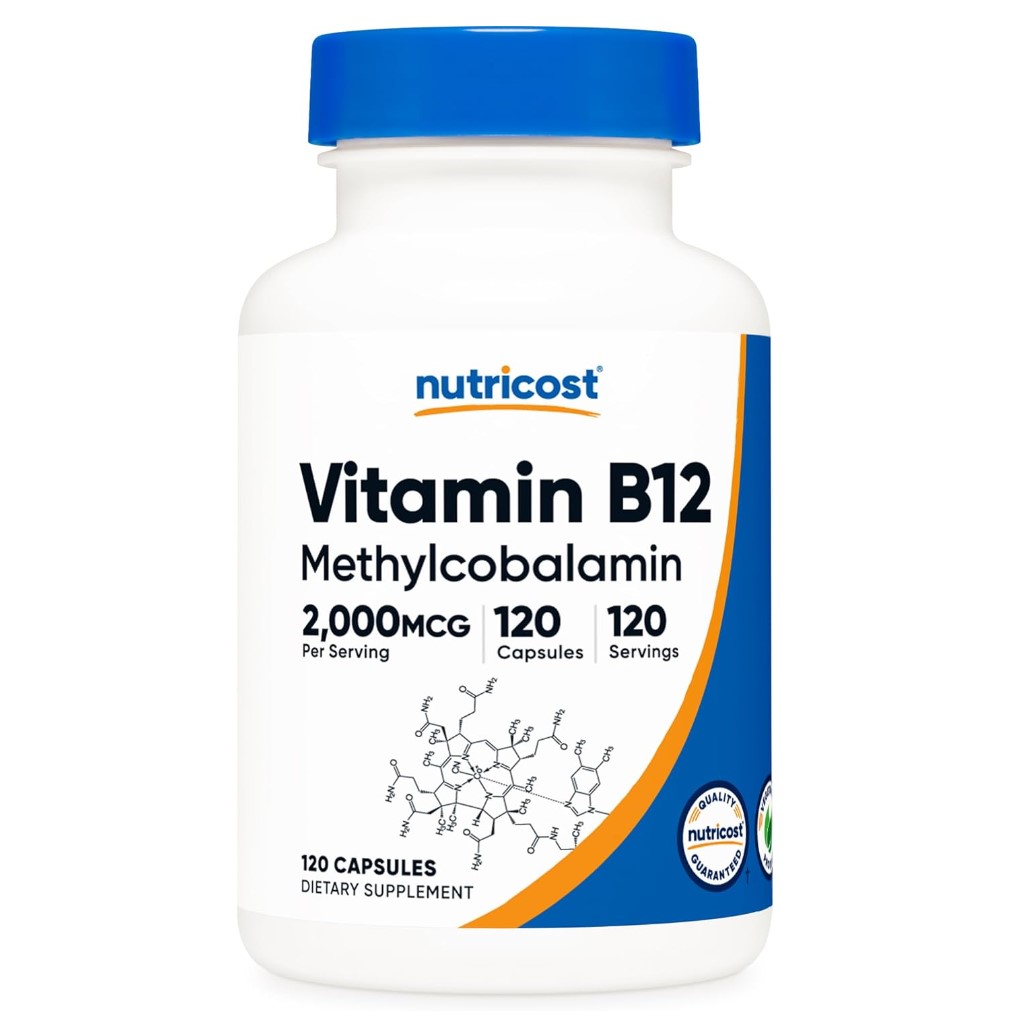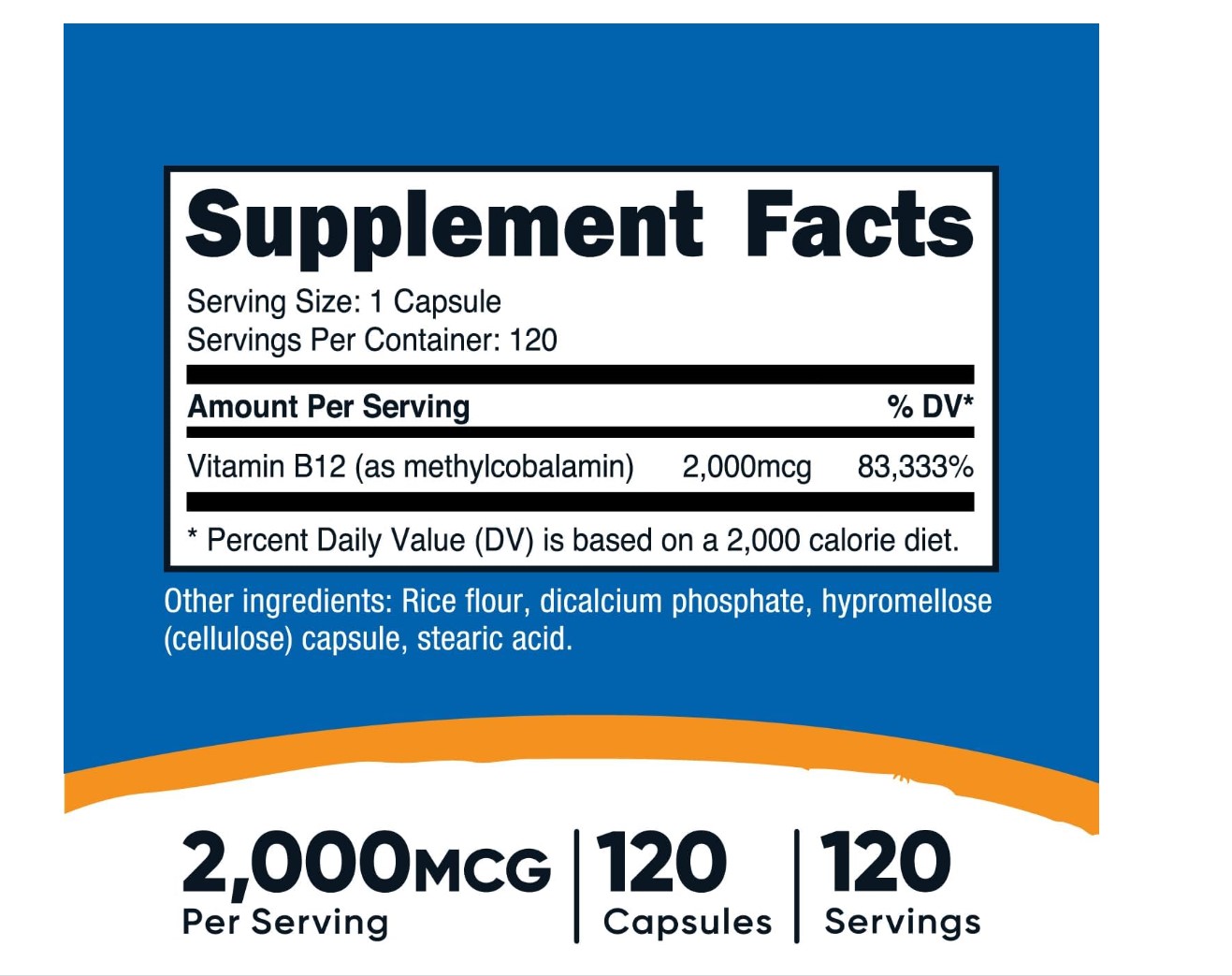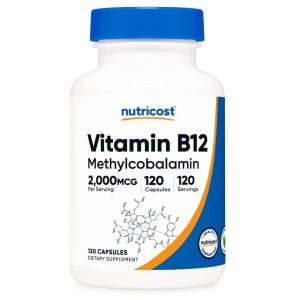Key benefits:
- Red Blood Cell Formation: Vitamin B12 is crucial for the production of red blood cells, which carry oxygen throughout the body. Without enough B12, red blood cell production can be impaired, leading to anemia.
- Nervous System Support: B12 is involved in the maintenance of the myelin sheath, a protective covering around nerves that helps nerve impulses travel efficiently. Adequate B12 levels are important for maintaining proper neurological function.
- Energy Production: B12 is involved in the metabolism of fatty acids and amino acids, which are important for converting food into energy. Sufficient B12 levels can help reduce fatigue and support energy levels.
- DNA Synthesis: B12 is necessary for the synthesis of DNA, the genetic material in all cells. It plays a role in cell division and growth.
- Supports Heart Health: Adequate levels of B12 are associated with lower levels of homocysteine, an amino acid that, when elevated, is linked to an increased risk of heart disease.
- Cognitive Function: Some research suggests that B12 may play a role in cognitive function and may help reduce the risk of neurodegenerative diseases.
- Mood Regulation: There is some evidence to suggest that B12 may be involved in regulating mood and may help in reducing the risk of depression and improving overall mental health.
- Supports Bone Health: Vitamin B12, along with other B vitamins, may help maintain bone health by contributing to the production of osteoblasts, cells responsible for bone formation.






Reviews
There are no reviews yet.